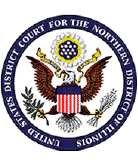Chicago Homicide Lawyer
Homicide Defense Attorneys in Chicago
Criminal offenses involving someone's death are considered to be violent crimes, and they are usually classified under the general category of homicide, even if the death was accidental. Anyone who is accused of these types of offenses will need to be aware of the specific charges they are facing and the potential consequences that may apply if they are convicted. In Illinois, there are several offenses that fall under the category of homicide, including first degree murder, second degree murder, and involuntary manslaughter. Each offense carries its own set of penalties, but they often involve large fines and multiple years of jail time. In these situations, a skilled criminal defense attorney can help a defendant navigate through the criminal justice system while providing guidance on the best course of action a person can take to reach a positive outcome to their case.
The Law Offices of James F. DiQuattro provides criminal defendants with experienced representation, helping them determine how to address specific charges and aggressively advocating for them in front of judges or juries. If you have been charged with murder, manslaughter, or other offenses related to homicide, we will work hard to protect your rights, and we will advise you on the ideal defense strategy. We can help you determine whether a dismissal of your charges may be possible or whether it may be beneficial to negotiate a plea bargain to reduce the charges against you and limit the penalties that may be imposed.
Types of Homicide Charges in Illinois
There are several offenses that involve or are related to homicide, including:
- First degree murder - This is one of the most serious crimes a person can be charged with, and it may apply if someone is accused of intentionally killing someone else or causing someone's death through actions that they knew were likely to result in severe or fatal injuries. A conviction may result in a prison sentence that will last between 20 and 60 years, and if a case involved certain aggravating factors, a life sentence may apply.
- Second degree murder - If a person allegedly committed acts that would be considered first degree murder, but there were mitigating circumstances, a charge may be reduced to second degree murder. Mitigating circumstances will generally involve situations where a person was provoked into suddenly acting out of intense passion, resulting in the accidental or negligent killing of someone else. Alternately, a person may have believed that their use of force against another person was justified, but second degree murder charges may apply if this belief was unreasonable. Second degree murder is a Class 1 felony that can be punished by a jail sentence of four to 15 years.
- Involuntary manslaughter - This offense involves the unintentional killing of a person through reckless or negligent actions that were likely to lead to someone's death or cause great bodily harm. Involuntary manslaughter is a Class 3 felony, and it usually carries a prison sentence of two to five years. If involuntary manslaughter resulted in the death of a police officer, Class 2 felony charges may apply, and a person may be sentenced to three to seven years. If a member of a person's family was killed, this may also result in Class 2 felony charges, and a sentence of three to 14 years may apply.
- Reckless homicide - This offense may apply if a person unintentionally kills someone else while operating a motor vehicle. It is a Class 3 felony in most cases. However, if a person killed someone in a school zone or other public road where a crossing guard was performing their duties, or if they killed a worker in a construction zone, they may be charged with a Class 2 felony and sentenced to between three and 14 years. Class 2 felony charges may also apply if a person killed a police officer while driving recklessly.
- Drug-induced homicide - If a person sold or delivered controlled substances to someone who then died of an overdose, the person may face homicide charges in addition to charges of drug delivery. Drug-induced homicide is a Class X felony, which can result in a prison sentence of six to 30 years.
- Concealment of homicide - This offense involves concealing the death of a murder or homicide victim, such as by hiding a body and attempting to destroy evidence. It is a Class 3 felony.
Contact Our Cook County Homicide Defense Lawyer
If you have been charged with offenses related to homicide in Cook County, it is critical that you contact an experienced criminal defense attorney as soon as possible. Our team at the Law Offices of James F. DiQuattro understands the severe consequences that those who are convicted of homicide can face, and we are committed to providing our clients with strong legal representation while protecting their rights at all times. Reach out to us today by calling 312-627-9482 to arrange your free initial consultation and get started on building your defense.
















